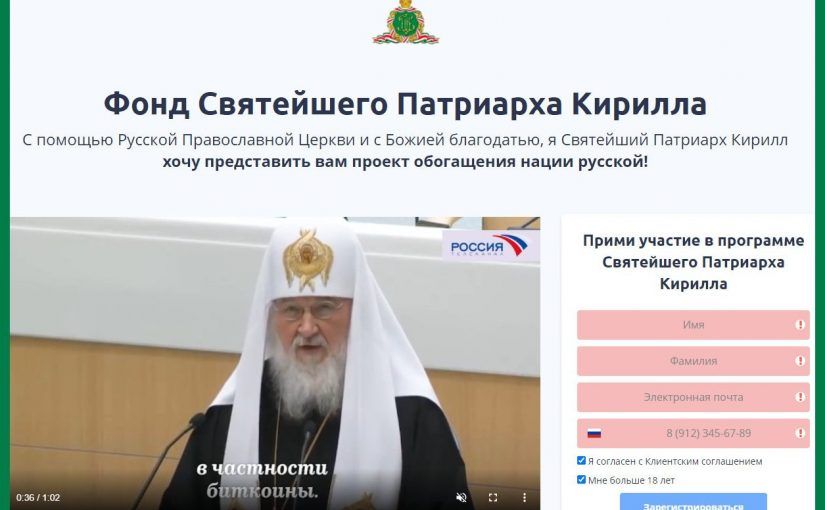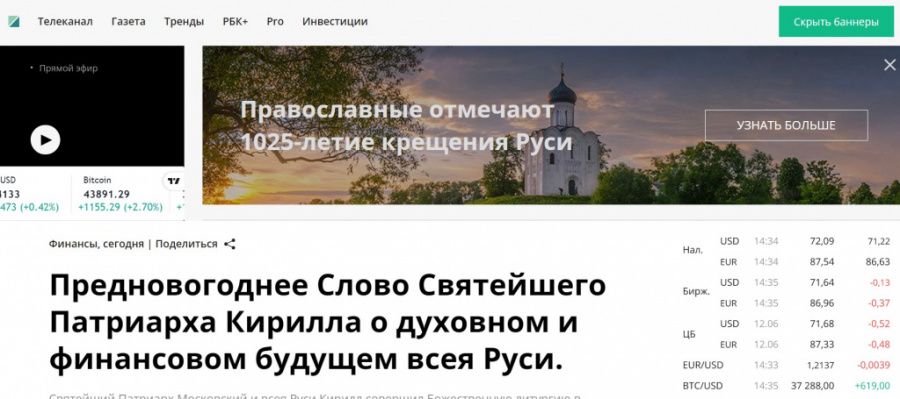Nothing is Sacred: Scammers Use the Name of the Head of Russian Church to Steal Money in Cryptocurrency

On the eve of Christmas, a hypocritical scam video shook the world of the Orthodox Church.
"This Sunday, Patriarch Kirill will hold a service in which he will bless all investors and crypto traders for this activity in the Moscow Orthodox Church," reads a YouTube video posted by scammers calling to invest in their project.

(Screenshot of the scam video)
According to the report from TASS, the Moscow Patriarchate has drawn attention to a website that uses the name of Patriarch Kirill of Moscow and All Russia "for obvious fraud" and has asked law enforcement agencies to look into the situation.
The video and website used a short quote from a real speech made by the Moscow Patriarch to the Russian Federation Council, saying, "Recently, so-called cryptocurrencies, especially Bitcoins, have become widespread in the world." However, the full quote had exactly the other meaning and ended as follows: "And then Bitcoin suddenly collapses within two weeks, and people understand that they did not gain anything, they lost. They have lost everything they had."
Judging by the website template and other features, these are the same fraudulent brokers promising income from gas trading or Gazprom shares, another report notes. In order to instill confidence in the website visitors, the format of a news presentation was used and the logo of one of the authoritative information agencies in Russia - RBC - was placed at the top of the page.

(Screenshot of the scam webpage)
Moreover, in their presentation of the project, the scammers do not hesitate to make fun of the website's potential victims, saying they are "grateful" for the "blind faith":
"All the organizers and I are very grateful for the great desire and blind faith in a better future."
Vladimir Legoyda, the head of the Moscow Patriarchate's Synodal Department for Church Relations, noted that the Synodal Department has long been working to identify similar fraudulent websites that deceive believers to get their money.
Price
Blockchain
Price
Price
Price

(0 comments)